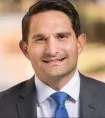Professional sports leagues in the U.S. have tried to tackle the issue of diversity and inclusion among their leadership for decades with league-wide rules and policies designed to create opportunities for underrepresented groups. Success has varied across leagues. However, since the murder of George Floyd galvanized a national reckoning around race, diversity and inclusion within all industries, including professional sports, has become increasingly important and urgent to businesses and their stakeholders. In professional sports, some leagues have taken more progressive and innovative approaches than others, implementing more than surface-level efforts, drawing input from across their leagues, and supporting individual player efforts on inclusion, and other issues ranging from social justice to civic engagement.
The WNBA, for example, is a leader in diversity and inclusion, with inclusive representation seen across the league, including team ownership, front office leadership, and coaching. In 2021, the WNBAreceived top scores for racial and gender hiring practices among professional sports leagues from The Institute for Diversity and Ethics in Sport at the University of Central Florida, which issues an annual Racial and Gender Report Card. The WNBAhas held the top position since 2004.
WNBAplayers have used their voices and platform to lead movements focused on social justice, mental health, and LGBTQ+ advocacy and rights. The WNBAhas supported player efforts by introducing league-wide initiatives addressing many of the same issues. It has a social justice council focused on social justice programming and initiatives that include anti-racism training and voter registration.
The men's leagues closest in comparison to the WNBA's Racial and Gender Report Card are the NBAand MLS. The NBAleads men's professional sports in racial and gender hiring practices due to more general managers and coaches of color, and improvements in gender hiring, due to more women in senior management positions. Athlete activism is widespread among NBAplayers. The NBAhas taken supportive league-wide action to address issues of player concern by launching social justice, civic engagement, and inclusion initiatives and encouraging players to use their platforms for change.
In December, MLSannounced enhancements to its Diversity Hiring Policy for various sporting positions, including general managers and coaches. The updates are part of ongoing efforts to develop and hire talent from underrepresented groups across all areas of the MLSecosystem, including its clubs, youth academies, and new minor league unveiled in early November.
MLSfirst implemented its diversity hiring policy in 2007. The updates are the work of various stakeholders, including its Chief Diversity, Equity and Inclusion Officer, representatives from Black Players for Change, an independent organization of more than 170 MLSplayers, coaches, and staff, and SCORE(Soccer Collective on Racial Equality), a collective of Black former MLSplayers. The updates introduce comprehensive processes for considering underrepresented groups that include Black or African American, Hispanic/Latino(a), American Indian/Alaska Native, Asian, Hawaiian/Pacific Islanders, Canadian Indigenous, Canadian First Nations, Women, and members of the LGBTQ+ community.
Beyond general managers and coaches, the updates cover additional sporting positions, including chief soccer officer, assistant general manager, head of soccer operations, and director of player personnel. The updates also cover MLSacademy directors and coaches.
The updates impose notification and other requirements on club officials when hiring for covered positions. Clubs must inform the league about open positions and ensure finalist pools include two or more candidates from underrepresented groups, of which at least one candidate must be either Black or African American. Clubs must also provide the league with information about all candidates in the finalist pool and demonstrate all candidates received equal interview processes and comparable interview experiences.
The policy is not merely aspirational. Clubs will be held accountable and sanctioned for not complying. Sanctions include $50,000 for a first offense and $100,000 for a second offense. Higher sanctions are subject to the discretion of MLSCommissioner Don Garber.
The updates are the latest step by MLSto combat racism, advocate for social justice, and increase representation. In the past several years, MLShired its Chief Diversity, Equity and Inclusion Officer, implemented a diversity and inclusion committee, pledged $1 million to Black Players For Change, and started its Soccer Upward Mobility Initiative to provide underrepresented groups access, exposure, and career paths. MLSalso launched a civic engagement initiative to address issues of public concern among marginalized communities, including its MLSUnite to Vote campaign to encourage voter participation in the 2020 election.
Companies across industries are learning that managing company diversity and inclusion efforts is, in many ways, unmapped territory. However, success seemingly appears in environments where diversity and inclusion efforts are multifaceted. Such environments tend to provide a variety of voices from all levels the opportunity to be heard, supported, and have opinions valued and considered. Successful diversity and inclusion practices tend not to be one-off efforts but multiple initiatives and actions across an organization. Leadership also tends to take ownership over, exemplify, and drive the organization's diversity and inclusion initiatives and goals. While there is work left to do across professional sports, certain leagues can offer examples of how to drive and support diversity and inclusion within complex and diverse organizations.
Originally published by Forbes on 27, January 2022.
The content of this article is intended to provide a general guide to the subject matter. Specialist advice should be sought about your specific circumstances.

